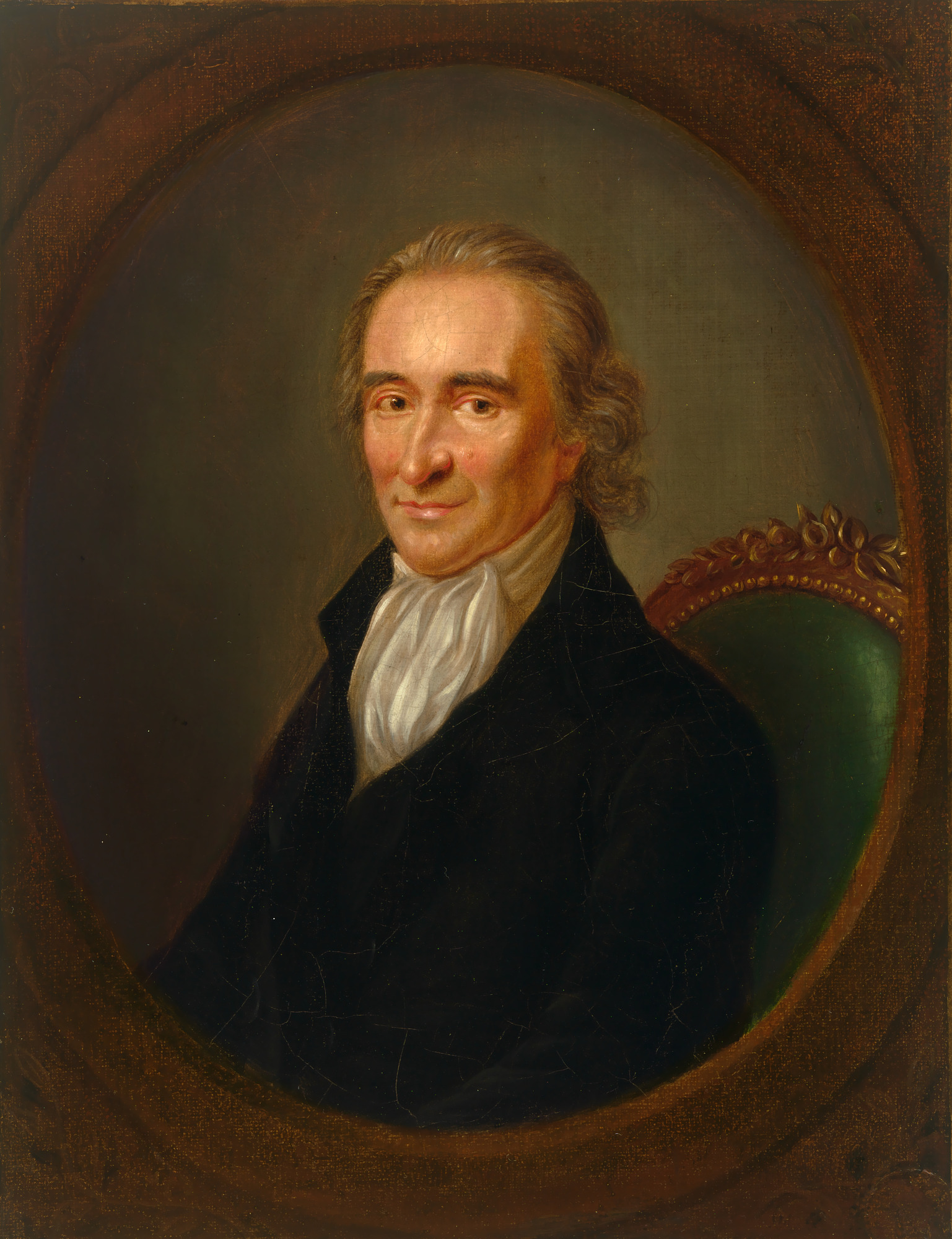Information
- █████ was arrested in France on December 28, 1793.
- Your guesses will appear here
Thomas Paine (born Thomas Pain; February 9, 1737 [O.S. January 29, 1736] – June 8, 1809) was an English-born American Founding Father, political activist, philosopher, political theorist, and revolutionary. He authored Common Sense (1776) and The American Crisis (1776–1783), two of the most influential pamphlets at the start of the American Revolution, and helped inspire the Patriots in 1776 to declare independence from Great Britain, theretofore an unpopular cause. His ideas reflected Enlightenment-era ideals of transnational human rights.
Born in Thetford, Norfolk, Paine emigrated to the British American colonies in 1774 with the help of Benjamin Franklin, arriving just in time to participate in the American Revolution. Virtually every rebel read (or listened to a reading of) his 47-page pamphlet Common Sense, proportionally the all-time best-selling American title, which catalysed the rebellious demand for independence from Great Britain. The American Crisis was a pro-revolutionary pamphlet series. Paine lived in France for most of the 1790s, becoming deeply involved in the French Revolution. While in England, he wrote Rights of Man (1791), in part a defense of the French Revolution against its critics. His attacks on Anglo-Irish conservative writer Edmund Burke led to a trial and conviction in absentia in England in 1792 for the crime of seditious libel.
The British government of William Pitt the Younger, worried by the possibility that the French Revolution might spread to Britain, had begun suppressing works that espoused radical philosophies. Paine's work, which advocated the right of the people to overthrow their government, was duly targeted, with a writ for his arrest issued in early 1792.

Thomas Paine (born Thomas Pain; February 9, 1737 [O.S. January 29, 1736] – June 8, 1809) was an English-born American Founding Father, political activist, philosopher, political theorist, and revolutionary. He authored Common Sense (1776) and The American Crisis (1776–1783), two of the most influential pamphlets at the start of the American Revolution, and helped inspire the Patriots in 1776 to declare independence from Great Britain, theretofore an unpopular cause. His ideas reflected Enlightenment-era ideals of transnational human rights.
Born in Thetford, Norfolk, Paine emigrated to the British American colonies in 1774 with the help of Benjamin Franklin, arriving just in time to participate in the American Revolution. Virtually every rebel read (or listened to a reading of) his 47-page pamphlet Common Sense, proportionally the all-time best-selling American title, which catalysed the rebellious demand for independence from Great Britain. The American Crisis was a pro-revolutionary pamphlet series. Paine lived in France for most of the 1790s, becoming deeply involved in the French Revolution. While in England, he wrote Rights of Man (1791), in part a defense of the French Revolution against its critics. His attacks on Anglo-Irish conservative writer Edmund Burke led to a trial and conviction in absentia in England in 1792 for the crime of seditious libel.
The British government of William Pitt the Younger, worried by the possibility that the French Revolution might spread to Britain, had begun suppressing works that espoused radical philosophies. Paine's work, which advocated the right of the people to overthrow their government, was duly targeted, with a writ for his arrest issued in early 1792.
